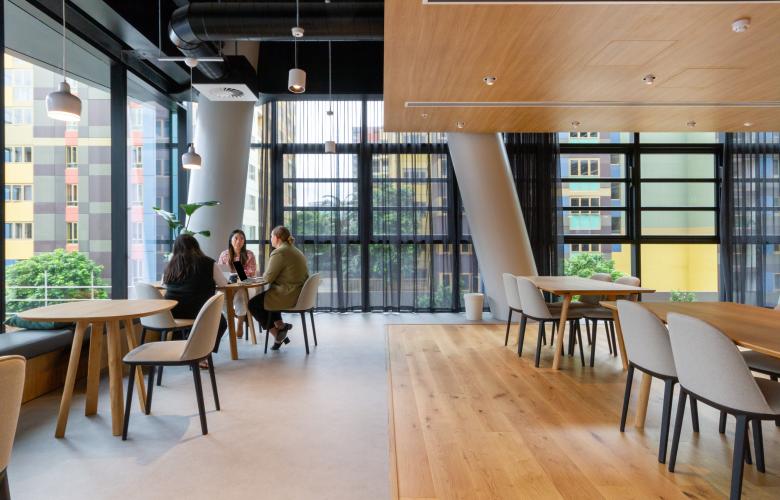How companies react when bull becomes bear
Contact
How companies react when bull becomes bear
Landlords and franchise operators navigating the current economic downturn may be unsure how to react as market volatility becomes increasingly recessionary. We explore how the commercial property sector can ready itself for recession resistance.
For many years, the commercial property sector has been rich with opportunities for landlords and franchise operators alike. Low interest rates, stable monthly income, healthy capital growth and greater return margins than residential property have provided fertile ground for shrewd investors.
Recent events, however, have brought an element of instability to global real estate markets, and the spectre of a moderate recession hangs in the air. In order to stay ahead of the curve and ensure that their investments remain profitable, landlords and franchisees need to understand the needs, anxieties, and pain points of the business clients that use their facilities.
How will business leaders adapt when buoyant bull markets go bear and start trending downwards? What impact will that have on their choices pertaining to property and workspace? The better franchisees and landlords understand this, the better positioned both they and their business clients are to mitigate risks and navigate the coming economic storm.
The commercial property sector: A state of the market address
The economic fallout from the global pandemic and the ongoing conflict between Russia and Ukraine have precipitated rising interest rates and the intervention of central banks all over the world to help stabilise global economies. The cost of doing business is rising, and the propensity for profits is shrinking as end consumers and business leaders alike seek to tighten their belts.
In its real estate market outlook, CBRE admits, “... with high inflation and rising interest rates putting downward pressure on growth […] the environment will be more challenging for property, with higher debt costs, and we expect, lower investment volumes”. Nonetheless, the real estate giant’s outlook remains optimistic. “Still, it should be a short lived and a moderate recession, with the green shoots of recovery evident towards the end of the year”.
That is not, however, to say that commercial landlords and franchisees should just hunker down and ride out the storm. Rather, they should directly address the changing needs of the clients that use their workspaces to ensure that they retain the lasting trust and sense of value that they get from the space and the franchise brand.
How business leaders may react to the coming recession
Many newer business leaders have known only low interest rates, easy access to borrowing and fairly strong consumer confidence. The 2020 crash, while certainly fraught with challenges for business leaders, was fairly transitory. The most recent sustained bear market was the financial recession of 2007-2008.
For landlords and franchise operators, understanding the nuance of change and how less experienced business leaders may react to market instability is critical to the ongoing success of their properties.
Instinctively, business leaders will seek to protect their cash flow. Less experienced leaders may go into a defensive survival mode making deep cuts and shedding assets to reduce leverage and overheads. But if the legacy of austerity has taught us anything it’s that neither businesses nor governments can cut their way to growth. Judicious cuts need to be paired with equally judicious investments. Fortunately, franchise operators and landlords that embrace the hybrid model can help them with this.
How business clients may survive and thrive in an economic downturn
Writing in 2019, the Harvard Business Review identified four ways in which businesses could survive in a recession and thrive afterwards. These were as follows:
- De-leverage by shedding assets to reduce debts
- Focus on decentralised decision-making to make the organisation more agile
- Looking beyond employee layoffs for ways to reduce labour costs
- Investing in technology to improve productivity and operational efficiency
IWG is dedicated to helping business clients to do all of the above in a way that prioritises people and the planet, while also helping to ensure profitability. This benefits business property stakeholders in a number of tangible ways:
- As clients shed fixed leases and hard assets in favour of more flexible arrangements, landlords and franchise partners are perfectly positioned to provide what they need at terms to suit them
- Hybrid working enables businesses to work in more agile and productive ways, with 58% of employees surveyed by McKinsey reporting that hybrid working improved their productivity. Improving productivity and profitability incentivises longer and more involved relationships between businesses and property stakeholders
- Hybrid workspaces can reduce desk costs by up to 50% allowing businesses to save money without compromising their competitive advantage
- Stakeholders benefit from a fully supported and networked site. 80% of FTSE500 companies currently work with IWG, making it easy to incorporate these companies into your CRE strategy
How hybrid lends itself to recession resistance
Hybrid working benefits commercial landlords, franchise operators and business clients alike.
Allowing businesses to access a flexible workspace via the hybrid model can play a key role in building recession resistance. Because terms are flexible and built around the needs of the client, there is no need for businesses to lock themselves into intimidatingly long or inflexible contracts.
Studies have shown a direct link between the flexibility and work-life balance that come with hybrid working and employee productivity. This in turn helps to boost economic growth.
Moreover, with flexible access to business-grade tech and connectivity infrastructure, businesses can leverage technology to boost productivity as and when they need it, without impinging on cash flow.
For landlords and franchise partners, this means a huge surge in demand for flexible workspace, making it easier for stakeholders to keep their spaces occupied, and deliver the kind of value that leads to long and profitable client relationships.
As the world’s largest provider to the flexible workspace industry, IWG is passionate about helping landlords, franchisees and business clients find a more flexible, productive, and cost-effective way of working.
Get in touch to see how we can support you today.
Related Reading:
Planning to make your space effective for a demand-driven portfolio
What a connected office might look like in the future
What do tenants want from the workspace of today?
Why Hybrid Clients Are Thinking Outside The Box
Current Work Trends : What Franchise Operators and Landlords Need To Know
Flexspace Benefits any Business... and any Property | Commo.
Current Work Trends : What Franchise Operators and Landlords Need To Know | Commo.
The Role of Franchise Operators and Landlords in the Future of Flexspace
Suburban rejuvenation. New places for workplaces. New opportunities for landlords.





